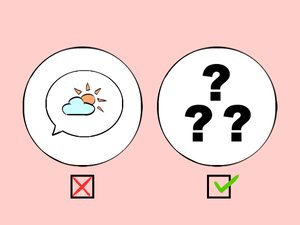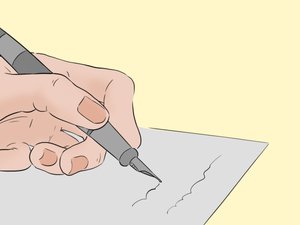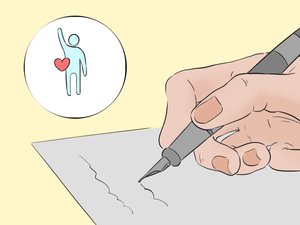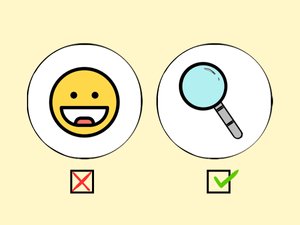How to Write a Humorous Essay

Authored by
Author, HumoristEveryone has an interesting story to tell, but the way you tell it should be interesting as well. This advice from David Sedaris will help you create your own humorous essays.

Authored by
Author, HumoristEveryone has an interesting story to tell, but the way you tell it should be interesting as well. This advice from David Sedaris will help you create your own humorous essays.

First you have to find an idea for your essay. Life can feel like a story, but only if you pay attention and tune in to the world. It’s not enough to stare at your phone all day; you have to look away from the screen and have experiences big and small, like feeding a kookaburra bird, as David Sedaris wrote about in his essay “Laugh, Kookaburra.”
Did you know?Saying no to opportunities shuts everything down, but saying yes can lead to a mini adventure. However, always focus on the experience—don’t pull out your notebook to write about it or else you’ll disrupt the beauty and authenticity of what’s happening. Just let it play out and see what happens next.

When talking with people, don’t ask the sort of question you’d ask a stranger in a hotel or store. Questions like “How’s your morning going so far?” or “Any big plans for the weekend?” don’t leave you with anywhere to go. Ask something unexpected like “Have you ever run for office?” or “How long has it been since you touched a monkey?” These will bring about conversations that dig below the surface.

Especially if you don’t know what to write about. Sit at your desk without the internet to distract you and see what you can come up with. So much happens when you don’t have an idea, and the only way to find out is to do the work.
Did you know?If you’re stuck, make a list of moments from your life that you find interesting. Go beyond the first three ideas—they might have already been done to death, but your eighth or tenth idea will have promise.

A diary is a mine of inspiration, so write in one every single day. The entries will be short, maybe only incidents or vignettes, but you can rewrite the ones that are funny or interesting, and that second draft might have potential as a full-on story or essay.

Find entries that have a shared or connected theme, and expand upon that so it’s not just an account of a visit to a taxidermist’s shop but an essay about how your macabre inclinations were understood by the taxidermist, like in David Sedaris’ essay “Understanding Owls.”
Did you know?People want to connect with your writing, and they’ll do so if you write about things they can relate to or see themselves in, even tangentially. They might not be into taxidermy, but they’ll understand what it means to have an unusual interest in something.

Essays can be simple and make people laugh and laugh, but then they’ll forget about them. Sorrow or emotion gives weight to the humor and makes it more memorable because they mean something.

Your duty as a writer is to let the reader see the people in your life through your eyes. You don’t want to embarrass them or expose any of their secrets. Always get the approval of the people you’re writing about, and show them what you’ve written. Make any edits or removals they ask you to make.
Did you know?It’s all right to express complicated relationships. It’s challenging to write about, but these complications make your essays richer. Discussing someone’s faults makes them seem complicated but doesn’t necessarily diminish them.

The reader can only hold so many characters in their head. Don’t include everyone at a dinner party, only the members who are pertinent to the story. The same is true for themes, incidents, or vignettes.

You’re your own gold mine, and you contain a wealth of experiences, stories, and, most importantly, reactions. Be honest about those, especially when they make you look bad. You need to be able to laugh about yourself, and then the readers will laugh along with you.

It’s not your job to be pretty or funny all the time. Sometimes you’ll need to get rid of a funny line and admit how you honestly feel. Dig deeper, be vulnerable, and your essay might go to a completely different place.
Did you know?Talking about emotions and talking about truth are two different things. Emoting can be cheap or manipulative. Instead, dig for the moment that connects everyone. This universally human connection will feel like touching a nerve, and it’s what you should strive for in your writing.